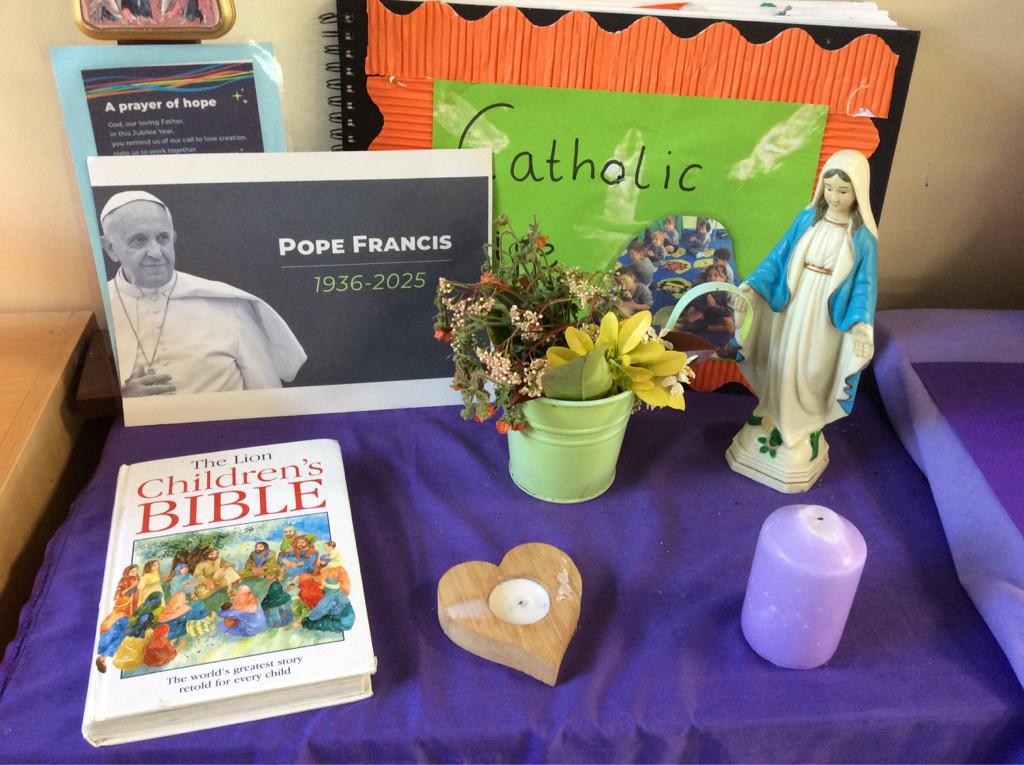RE Curriculum
Religious Education is central to the curriculum at St Mary’s and is at the heart of the philosophy of Catholic education. It teaches about our faith in the context of a school which proclaims the Gospel, and invites the individual to respond to the message of Christ. As the individual responds to this invitation, growth in faith and knowledge helps the pupil to respond to the call to holiness and understand the fullness of what it is to be human.
Religious Education is concerned not only with intellectual knowledge but also includes emotional and affective learning. Without religious education, pupils would be deprived of an essential element of their formation and personal development, which helps them attain a vital harmony between faith and culture. Moral formation and religious education also foster the development of personal and social responsibility and other civic virtues; they represent, therefore, an important contribution to the Common Good.
For this reason classroom Religious Education is a core subject at St Mary’s, whilst the wider dimensions of learning through liturgy and outreach are integral to the project of Catholic education. The content of Religious Education will help the pupil to make a critique of all other knowledge, leading, for example, to an understanding of the relationship between science and religion or history, and between theology, sport and the human body.
RE Altars
we are proud to foster a deep appreciation for our Catholic faith within our classrooms. Each class is equipped with a dedicated RE altar, a sacred space where students can honour their faith and reflect on their spiritual journey. 🌟
Our vibrant altars not only showcase special artefacts from the Catholic tradition but also provide a platform for students to connect with their beliefs. From beautifully illustrated prayer books to cherished symbols of faith, these altars serve as a daily reminder of the values we uphold as a school community.


Working Walls
Each classroom proudly features a Working Wall Display that highlights the key content of the topic being studied, especially in alignment with the educational standards set out in the Religious Directory. 📚✨

